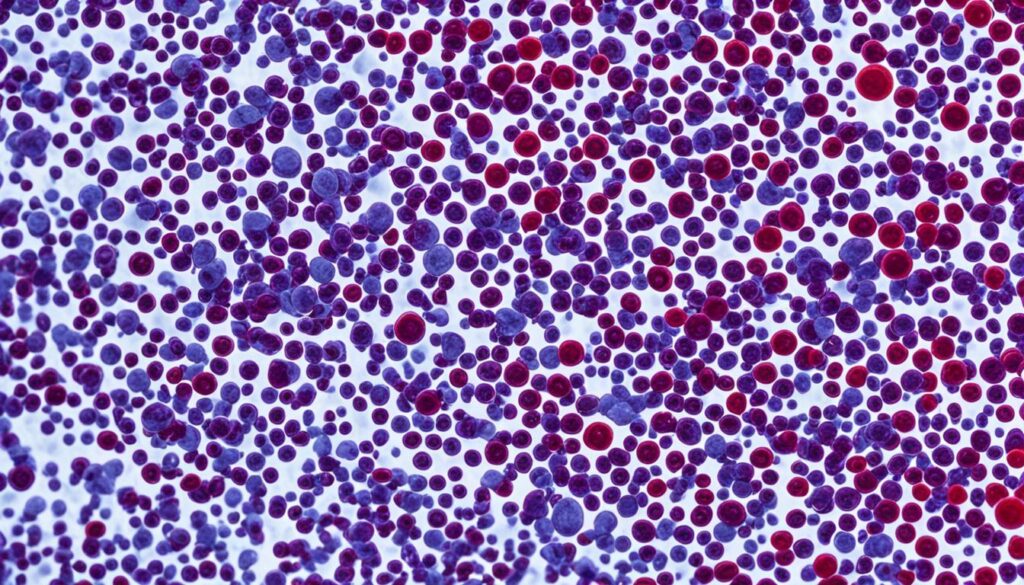Water fasting is a big deal in health and wellness. People don’t eat anything but water for 24 to 72 hours. It’s known for helping with weight loss and detox. But, we need to look closely at the science to see what it really does.
Studies show that water fasting can lead to weight loss. This is because the body uses stored glycogen for energy. It also loses water and muscle. But, it’s important to talk to a doctor before trying it, because it can cause mood swings, headaches, and make everyday tasks harder.
Despite the risks, people are still interested in how it can help with detox and health. The search for answers is ongoing.
Unlocking the secrets of water diet weight is a big topic. Scientists and people trying it out are talking about how well it works and if it’s safe for the long run.
Key Takeaways
- Thorough understanding of water fasting is crucial before undertaking this diet.
- Documented health improvements from controlled fasting practices.
- Importance of medical oversight during fasting to avoid potential health risks.
- Water fasting may lead to temporary weight loss through glycogen depletion.
- Ongoing scientific research investigates the claims of detoxification benefits.
The Essence of Water Fasting: A Primer on Extended and Prolonged Fasts
Extended and prolonged fasting have caught the attention of researchers and health lovers. They have become a big part of wellness talks. This practice of not eating for long periods has a long history. But, it’s the new trends and scientific findings that have made it popular today.
Historical and Cultural Roots of Water Fasting
Water fasting is not new. It has been around for thousands of years in many cultures and religions. It was seen as a way to clean the body and soul. People used it to treat illnesses like epilepsy and rheumatoid arthritis back then.
The old evidence was strong enough to keep it going through the years.
Contemporary Trends in Water Fasting Practices
Recently, water fasting has become popular again for its health benefits. It’s thanks to new research on fasting. These studies show that fasting can help with metabolic health. It might even lower the risk of diseases like diabetes and heart disease.
Now, people mix water fasting with modern health trends. They add mindfulness and living green to it. This is similar to how fasting was used before, for both body and spirit health, and to connect with others.
Even though fasting is still popular, people are careful. It can be hard on the body and not all research backs it up. So, water fasting is seen as a promising but complex way to get healthier. It’s very personal.
Diving Into Scientific Research: The Impact on Health and Weight Loss
The study of scientific research on water fasting shows interesting results. It may help with high blood pressure and weight control. A 2018 study found that fasting for 11 days led to weight loss and lower blood pressure. It also reduced oxidative stress, showing fasting’s health benefits.
Experts say water fasting for cleansing gives the body a break from digestion. It helps clear out waste. This can lower oxidative stress, helping with chronic inflammation or high blood pressure. The diet evidence supports this, making it popular among health seekers.
Water fasting does more than cleanse. Scientific research on water fasting suggests it can improve brain function and prevent obesity and related diseases. But, it’s important to know the risks, like dehydration and harm to organs, as noted by health experts.
| Impact Area | Results After Water Fasting | Study Findings |
|---|---|---|
| Blood Pressure | Reduction to normal levels | 90% of participants experienced this change after 10-11 days of fasting. |
| Weight Management | Decrease in body weight | Significant loss observed in the 2018 study over an 11-day period. |
| Oxidative Stress | Reduction | Contributes potentially to managing chronic diseases, as per a 2017 article. |
The detailed look at evidence-based water fasting benefits helps both fasters and doctors. It shows how fasting can affect health long-term, like blood pressure and disease risk. But, it also highlights the need for careful and informed fasting.
How Water Fasting Can Aid in Detoxification: Scientific Evidence
Water fasting is a simple yet powerful way to improve health and detoxify the body. It means not eating or drinking anything except water. This method triggers many biological processes that help clean and improve the body.
Understanding Detoxification through Fasting
The detoxifying effects of water fasting are quite significant. When you fast, your body uses fat for energy instead of food. This starts processes like autophagy, where cells clean out damaged parts, and ketosis, where the body uses fat for energy. These changes make your metabolism more efficient and boost your health.
Analyzing Current Scientific Studies on Fasting and Detox
Recent studies show that health benefits of water fasting go beyond just losing weight. They also improve blood sugar and cholesterol levels. Research at Queen Mary University shows how these changes happen at a molecular level, highlighting the long-term health benefits of water fasting.

| Health Aspect | Impact of Fasting |
|---|---|
| Blood Sugar Levels | Reduction |
| Cholesterol | Decrease |
| Heart Health | Reduces risk factors for heart disease |
| Detox Enzymes Activity | Enhancement |
| Cellular Autophagy | Stimulation |
The detoxifying effects of water fasting help remove toxins and support cell repair and rejuvenation. But, it’s important to be cautious with water fasting. It should be done with medical advice and care.
Fasting Safely: When and How to Pursue Water Fasts
Starting a water fasting journey needs careful planning for safety and success. With more people looking into fasting for detox, it’s key to know the benefits and how to do it right. This part covers the key steps to fasting safely, based on science and expert advice.
Fasting safely is crucial for good water fasting detox results. It’s wise to get a doctor’s advice, especially if you have health issues or plan long fasts. Here’s a guide on how to manage a water fast well, focusing on the body’s natural detoxification process:
- Start with short fasts (24-48 hours) to see how your body reacts.
- Slowly increase the fasting time with a doctor’s help to avoid problems.
- Keep hydrated and watch your electrolyte levels.
- Be ready for refeeding to prevent refeeding syndrome.
- Watch your health closely and stop the fast if you have bad symptoms.
| Study | Findings |
|---|---|
| Goldhamer et al. | Found water-only fasting helps with hypertension. |
| Wilhelmi de Toledo et al. | Reported health improvements in various subjects during fasts of 4 to 21 days. |
| Mojto et al. | Found positive kidney function and reduced oxidative stress. |
| Dr. Thomas W. Hopkins | Supports supervision and slow increase in fasting time for longer fasts. |
| Dr. Toni J. Brayer | Stresses moderation and getting a doctor’s advice before fasting. |
These studies show water fasting can be effective when done right. But, it’s important to follow a careful plan and keep an eye on your health for the best water fasting detox results.
In conclusion, while the promise of quick detox and health gains is tempting, fasting safely should always come first. Talking to health experts and thinking about your health is the first step to a successful fasting journey.
Deciphering the Detoxification Process During Water Fasting
Water fasting means not eating or drinking anything with calories for a while. It makes the body use fats instead of sugar for energy. This change is key to understanding how fasting can be good for health.
Water fasting starts a detoxification process by making the body use fat for energy. This releases toxins stored in fat. Studies show it can lower the risk of heart disease, cancer, and diabetes.
During fasting, the body’s metabolism changes in a good way. It becomes more sensitive to insulin and leptin, helping with weight management. This also helps cells clean themselves, making them work better.
The body switches from using sugar to fat for energy. This helps with weight control and saves energy when you’re not eating. This shift is important for fasting to be safe and effective.
Even though fasting is popular for detox and health, it should be done with a doctor’s advice, especially for those who are more at risk. Drinking mineral-rich water during fasting helps replace lost minerals. After fasting, eating foods rich in nutrients is important to avoid health problems. More studies are needed to fully understand fasting’s effects on health over time.
Unveiling the Water Fasting Detox Results: Subjective and Objective Outcomes
Exploring water fasting detox results shows interesting changes in both feelings and physical health. People often feel less stressed and more physically well after fasting. They say the benefits of fasting for detox help with this.
On the other hand, fasting changes body composition and health markers. These changes help us understand how fasting affects our bodies.
Perceived Levels of Stress and Physical Wellness
Many people who fast say they feel clearer mentally and more emotionally stable. They feel less stressed. Scientific evidence points to fasting’s effects on brain chemicals and hormones. These play big roles in how we feel and handle stress.
Tracking Changes in Body Composition and Biomarkers
Fasting often leads to losing fat and changing body weight. Tracking biomarkers like blood sugar and ketone bodies shows how the body is detoxing. Here are some key findings:
| Marker | Pre-Fasting | During Fasting | Post-Fasting |
|---|---|---|---|
| Weight | Varies | Decreases | Decrease sustains/moderates |
| Blood Glucose | Normal/High | Lowers | Stabilizes |
| Ketone Bodies | Low | Increases | Reduces to normal |
These water fasting detox results help us understand how to safely and effectively fast. They show the benefits of fasting for detox. But, we need more research to confirm these findings with solid scientific evidence.
The Health Benefits of Water Fasting: A Closer Look at Fasting Physiology
Water fasting, a practice of not eating or drinking anything except water, has caught the interest of health experts and fans. This fasting method leads to big changes in metabolic shifts and deep dives into fasting physiology. It shows how our bodies adapt and manage energy when we don’t eat for a long time.
Metabolic Shifts and Energy Source Transition
When you fast, your body changes how it gets energy, especially in the first 24 to 72 hours. At first, it uses carbs for energy. Then, it starts using fat as its main energy source. This switch is key to understanding the health benefits of water fasting.
A 2022 study with 48 people showed that these changes can lead to losing weight and lowering BMI. But, about half the people stopped the study early because of headaches and feeling very tired.
Longer fasting periods can also make you healthier in other ways. For example, it can lower your blood pressure and make your body more sensitive to insulin. Dr. Goldhamer’s research at the TrueNorth Health Center has shown how fasting can help with these health issues.
Muscle Preservation Versus Fat Loss in Water Fasting
Understanding how fasting affects muscles and fat is important. Losing fat is good, but losing muscle can be bad for your health. Studies from TrueNorth Health Center suggest that fat loss lasts, but muscle mass comes back quickly after fasting.
Dr. Goldhamer’s work shows the need for careful refeeding after fasting. This is to avoid refeeding syndrome, a serious condition if not handled right.
| Study | Participant Details | Duration | Outcomes |
|---|---|---|---|
| 2021 Study | 12 middle-aged men | 8 days | Significant changes in blood and urine markers |
| 2022 Study | 48 men and women, overweight/obese | At least 10 days | Decreases in weight and BMI scores |
| TrueNorth Health Center Outcomes | 174 patients with hypertension | Varies | Average blood pressure drop of 60 points in stage III hypertension |
As we keep exploring water fasting for health, it’s important to understand its good and bad sides. This will help us use it in a way that brings the most benefits with the least risks.
Confronting the Risks: The Darker Side of Water Fasting
Water fasting is often praised for its detox and health perks. But, it has risks that need careful thought. These risks, especially for high-risk groups, can be serious.
Potential Adverse Effects and How to Mitigate Them
One big risk of water fasting is making health problems worse or causing new ones. This includes dehydration and imbalances in electrolytes. These can lead to headaches, dizziness, and heart strain.
Studies like the 2001 research by Popowski et al. show how important it is to watch your hydration levels.
Not eating for a long time can also break down muscles and lead to nutrient shortages. It can make mood swings and fatigue worse, especially for those with mental health issues. Research by Bar-David et al. (2005) found that dehydration can affect kids’ thinking skills, and this can happen across different ages.
Identifying High-Risk Groups for Water Fasting
Pregnant people, those with type 1 diabetes, and those needing food-based medication should skip water fasting. These groups face big risks like low blood sugar and ketoacidosis. Doctors strongly advise caution before starting a fast.
Table 1 below shows how dehydration affects thinking in different age groups. Studies by Bar-David et al. (2005) and Fadda et al. (2008) provide these insights.
| Study | Participant Group | Key Findings |
|---|---|---|
| Bar-David et al. (2005) | Elementary school children | Voluntary dehydration negatively affected cognitive performance |
| Fadda et al. (2008) | School-aged children | Supplementary water improved cognitive performance |
In conclusion, water fasting can have health benefits if done right. But, it’s crucial to know the risks. Always get medical advice to avoid problems and stay safe, especially if you’re in a high-risk group.
The Weight Regain Debate: Maintaining Results Post-Water Fasting
Many people worry about keeping off the weight after water fasting for weight loss. Water fasting can lead to big weight drops at first, but keeping those results is hard. It’s important to know how to keep the weight off because water fasting also helps with metabolism and reduces inflammation.

When fasting, you lose water weight and sometimes muscle mass, which you might gain back quickly when you start eating again. To keep weight off, it’s crucial to understand and use smart eating habits after fasting. These habits should help you meet your health goals for the long term, not just for a short time.
| Indicator | Value at End of Fasting | Value after Refeeding |
|---|---|---|
| Systolic Blood Pressure (SBP) | Decreased | Stabilized |
| Abdominal Circumference (AC) | Decreased | Increased |
| Low-density Lipoprotein (LDL) | Decreased | Variable |
| Insulin Resistance (HOMA-IR) | Increased | Increased |
| Triglycerides (TG) | Increased | Increased |
Recent studies show that fasting can lower blood pressure and waist size, but these changes might not last. Insulin resistance often gets worse after fasting, showing the metabolic challenges that can make it hard to keep weight off.
Water fasting detox results can be lasting, changing your body and health for the better. But, just eating normally after fasting might not keep the benefits. To keep weight off, focus on eating the right amounts, eating well, and eating mindfully. Regular check-ins with health experts can also help avoid big weight swings and keep you healthy.
Intermittent Fasting: A Scientifically Elucidated Alternative
People are looking for good ways to stay healthy and manage their weight. Intermittent Fasting (IF) is a supported alternative to long water fasts. It involves eating in cycles, with times of eating and times without. This approach fits well with today’s busy lives, unlike the constant hunger of water fasting.
IF, like modified alternate-day fasting, helps with metabolism and avoids the dangers of not eating for too long. It’s a flexible way to stay healthy.
Comparing Intermittent and Water Fasting Modalities
Intermittent fasting is different from traditional water fasting in how it affects our daily lives. Research shows that eating every other day can help with weight, metabolism, and even asthma. It’s a gentler way to get healthier, allowing for regular eating and better nutrition.
Exploring Time-Restricted Eating and Metabolic Benefits
Time-Restricted Eating (TRE) is a type of IF that limits eating to certain hours. It helps with metabolism and can improve how the body handles sugar and insulin. Studies suggest it makes the body use fat and ketones for energy, not just glucose.
This shows IF’s benefits go beyond just weight loss. It can improve overall health and help prevent diseases. More research is needed to fully understand its long-term effects and safety.
Source Links
- Excretion of Heavy Metals and Glyphosate in Urine and Hair Before and After Long-Term Fasting in Humans
- Does fasting help to remove toxins from the body? | The Times of India
- Preventive Medicine Associates, PLLC | Camillus, NY | Monthly Articles
- Microsoft Word – jamie washam thesis.docx
- Blog | VitaDAO
- Water Fasting: Benefits and Risks
- The Facts on Intermittent Fasting and Health
- Does Fasting Release Toxins in the Body?
- What Is Water Fasting And Should You Try It?
- Is Water-Only Fasting Safe?
- The Truth about Fasts and Cleanses
- Water Fasting
- Water fasting: Benefits, risks, and how to do it
- 4 Physical Detoxification Services for Withdrawal From Specific Substances – Detoxification and Substance Abuse Treatment
- The Truth about Supplements and Detox Diets
- A Detoxification Intervention for Gulf War Illness: A Pilot Randomized Controlled Trial
- Water Fasting: Weighing the Benefits and the Risks
- Alan Goldhamer, dc: Water Fasting—The Clinical Effectiveness of Rebooting Your Body
- Water, Hydration and Health
- Religious fasting and its impacts on individual, public, and planetary health: Fasting as a “religious health asset” for a healthier, more equitable, and sustainable society
- I Consumed Nothing but Water for 5 Days. Here’s Why, What Happened, and Why it Was Awesome.
- The Effects of Prolonged Water-Only Fasting and Refeeding on Markers of Cardiometabolic Risk
- The Truth About Water Fasting for Weight Loss | Fittr
- Water Fasting: How It Works, Benefits, and Dangers
- INTERMITTENT FASTING AND HUMAN METABOLIC HEALTH
- Intermittent fasting: the science of going without




